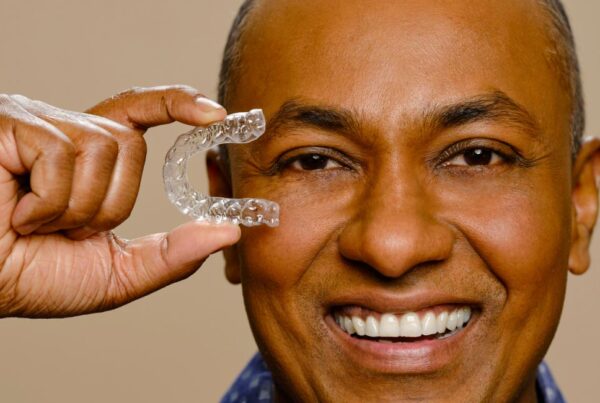It’s National Children’s Dental Health Month and that means it’s time to focus on keeping those big, beautiful smiles healthy! Every February, the American Dental Association (ADA) sponsors this month-long celebration to raise awareness about the importance of good dental health for kids.
From brushing and flossing to visiting the dentist regularly, there are many things parents and kids can do to keep their smiles healthy and bright!

Let’s take a look at the different ways we can celebrate National Children’s Dental Health Month and keep those smiles shining!
Overview of National Children’s Dental Health Month
February is National Children’s Dental Health Month, a time for parents and caregivers to focus on their children’s dental health. This is an important time to ensure proper oral health care for children and to promote awareness of the importance of good dental care.
Children’s dental hygiene needs increase with age. By the time a child reaches age 2, their teeth are starting to come in and care for them now will help ensure healthy teeth and gums into adulthood. Parents can help promote good dental hygiene by providing fluoride toothpaste and water bottles, discouraging sugary snacks, and providing information about oral health.
The American Dental Association (ADA) has created five essential steps for maintaining good oral health in children: brushing and flossing regularly; using fluoridated toothpaste; avoiding tobacco usage; getting regular check-ups; and seeking treatment if problems arise.
Dental Health for Children
Good dental health is essential for the overall health and wellbeing of children. Starting early with teaching children proper oral hygiene habits is key to developing lifelong healthy habits. It is also important to be aware of the signs and symptoms of dental health problems so that you can quickly seek treatment when necessary.
Taking care of a child’s dental health from a young age is the best way to ensure a lifetime of great dental health. Encourage them to brush and floss their teeth at least twice a day, as well as using mouthwash to keep their mouths clean. You can help them learn proper care for their teeth and gums by showing them pictures of healthy teeth and gums and explaining the importance of keeping their smile healthy and strong.
Regular dental check-ups are also an important part of dental health for your children. During the visit, your dentist will inspect your child’s teeth, gums, and mouth for any signs of decay or potential issues. They can also offer helpful advice on proper oral care for your child.
In addition to regular check-ups, it’s important to be mindful of what your child is eating. Sugary snacks and drinks can create cavities and increase the risk of tooth decay. If your little ones are consuming excess sweets, look into healthier alternatives to replace them.
Finally, it is critical to notice the indicators of dental health problems in your children. If your child’s teeth are discolored or they are having difficulties chewing, you should take them to the dentist straight away. Early detection and treatment of any dental health issues can help avoid more serious problems from happening.
Benefits of Good Oral Hygiene
There are numerous benefits to good oral hygiene, beyond just avoiding cavities and tooth decay. Here are some of the major benefits:

- Reduced Risk of Infection: Good oral hygiene helps to reduce the risk of infection, such as tooth abscesses, periodontal disease, and endocarditis. This is because bacteria and plaque build-up on the teeth and gums, which can lead to infection if left untreated.
- Improved Health: Good oral hygiene can help improve overall health. Studies have found that people with poor oral hygiene are more likely to suffer from heart disease, stroke, and diabetes.
- Better Appearance: Poor oral hygiene can lead to yellowing of the teeth, bad breath, and gum recession. Consistent brushing and flossing can lead to a healthier, more attractive smile.
- Improved Breath: Poor oral hygiene leads to bad breath, which can be socially embarrassing and affect self-confidence. Regular brushing and flossing can help reduce bad breath and keep your breath smelling fresh.
- Better Self Esteem: A healthy smile can boost self-confidence and help you feel better about yourself.
- Reduced Risk of Oral Cancer: Good oral hygiene can help reduce the risk of oral cancer. This is because oral cancer is often caused by the presence of certain bacteria in the mouth.
Common Dental Procedures for Children
It’s no secret that caring for children’s teeth is a daunting task facing any parent. Little ones don’t always have the best oral hygiene habits, and it can be difficult to know what types of treatments are needed as they grow and develop. However, with regular dental visits, scheduling comprehensive dental exams, and staying on top of preventive care, children can have healthy, beautiful smiles for life. Let’s take look at some of the most common dental procedures for children and why they’re essential for your child’s dental health.
Dental Scaling and Fluoride Treatments
Dental scaling and fluoride treatments are critical for maintaining the health of children’s teeth and preventing cavities. During a child’s dental checkup, the dentist or hygienist will use an ultrasonic cleaning tool to remove plaque and calculus that can cause tooth and gum damage. Furthermore, the dentist may use a topical fluoride treatment in the office to strengthen the teeth and preserve the enamel from decay.
Sealants: Sealants are a dental procedure for children that involves painting a sealant material on their molars, covering their grooves and pits, where cavities are most likely to form. This helps to protect them from decay and further damage, allowing children to enjoy something as simple as eating popcorn without worrying about damage to their back teeth.
Fillings: In cases where a cavity has already formed, fillings are placed in order to repair the affected area and stop the spread of decay. This procedure is relatively simple and involves the dentist removing the decayed material from the tooth and then filling the tooth with a composite or GIC material, which re-forms the tooth in a natural shape and shade.
Extractions: In some cases, it’s possible for a cavity to get too deep and cause damage to the surrounding gums and bone. When this happens, the dentist may need to extract the affected tooth in order to prevent any further damage from occurring. In some cases, a space maintainer may need to be placed after the extraction in order to protect the surrounding teeth.
Root Canals: Root canals are sometimes necessary when a cavity has become too deep and damaged the roots of a tooth. This procedure is more involved than a filling and involves the dentist accessing the root of the tooth with a special tool, cleaning it, and then sealing it shut.
Come to Orthodontic Experts and Experience the Best Care for Your Child’s Smile
National Children’s Dental Health Month is the perfect time to start preparing your little one for a healthy smile, and the right dentist is essential to helping them get there. Orthodontic Experts is here to make sure that your child’s smile is healthy and strong, now and as they grow into adulthood.
At Orthodontic Experts, we understand the importance of a healthy smile. We are passionate about preventive care and educating patients,

and always prioritize the best possible treatment options for our patients and their families.
Our goal is to give your child the smile they’ve always wanted and the confidence that comes with it. We are encouraging parents to get free regular check-ups for their kids to prevent serious dental problems in future.
Our staff provides children with personalized and compassionate care, helping them become confident and comfortable in the dental chair. Get in touch with us today to book your slot!










